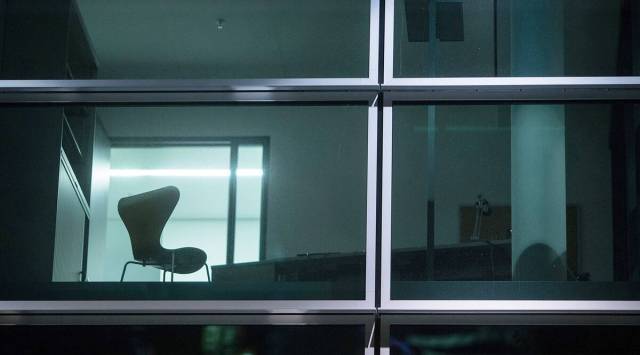- India
- International
The Great Resignation: Why CEOs must listen to the rona-dhona of young professionals
The pandemic, internet and social media have changed the world of work. Companies must address toxic work cultures
 While terms such as “work-life balance” or insistence on spending quality time with family are Instagram fluff for many employers, in my experience it is what has saved (and I don’t use that word lightly) many lives.(Bloomberg Creative Photos/Bloomberg)
While terms such as “work-life balance” or insistence on spending quality time with family are Instagram fluff for many employers, in my experience it is what has saved (and I don’t use that word lightly) many lives.(Bloomberg Creative Photos/Bloomberg)A few months into the pandemic, a young woman in her early 20s approached me. She was battling what she called “too much self-criticism”. Till about a year ago, she said, she was on top of her game at work and managed to immaculately check-off items on her “to-do list” at the end of each day. But since the pandemic struck, and work became remote and more disconnected, she simply couldn’t get herself to do “what was needed” and her inner critic had been lashing her for it endlessly.
What she meant by “what was needed” was working for over 16 hours every day, responding to WhatsApp messages even on her day off, and networking with other industry peers (albeit on Zoom) for growth opportunities. She was, in short, not heeding the advice of Bombay Shaving Company CEO Shantanu Deshpande — who suggested that young employees work “18 hours a day for at least 4-5 years” in the initial stages of their career – and was instead doing “rona-dhona” about her mental health.
While the context of Deshpande’s statement is up for debate, as a psychologist who counsels young students and professionals daily, I can report that there is a growing contempt for such a mindset among my clients. In all honesty, as someone who grew up in a middle-class home, for me too, working hard and burning the proverbial midnight oil was the only way of achieving your dreams, and I can see our parents’ generations nodding in agreement to Deshpande’s suggestion.
But in a post-social media, post-pandemic world, such advice seems almost rash. While terms such as “work-life balance” or insistence on spending quality time with family are Instagram fluff for many employers, in my experience it is what has saved (and I don’t use that word lightly) many lives. For instance, one of my client’s family became his biggest safety net – both financial and emotional – when he was fired as part of cost-cutting measures at his firm.
Another client, a student, found himself switching between news apps in the middle of the night as uncertainty over exam schedules, syllabus and timetables peaked in the early days of the pandemic. A high-achiever who was banking on good scores to land his dream job, he found the pandemic crushing all his plans. He had devoted hours and hours to his studies, ignoring every other aspect of his life. He came to me with complaints of severe anxiety. After putting consistent effort to distance himself from the screen and build a life beyond his “dream job”, he managed to recover. He found peace in gardening and began growing many plants on his balcony. He is done with his exams and now, as the world opens up, hopes to land a job. In his words, “I have started to take one day at a time.”

A cursory glance at some of the posts by young workers on LinkedIn will show a transformation in perspective on what defines success. The previous generation can scoff at the focus on self-care, or even mundane activities like gardening, as being lazy and unproductive, but for the young, these are all part of having more well-rounded lives.
In my experience, the limitless world ushered in by the internet has a big role to play in this shift. It has made youngsters fearless, as the backlash to Deshpande’s comments has also shown. I have counselled countless professionals who have quit their jobs a year into the pandemic only to start entrepreneurial ventures. As one of my clients put it, “my generation focuses more on trusting ourselves not others.”
But as the young are finding their voice and priorities, are the employers — who have so far been accustomed to giving orders – listening? Because if companies want to defeat trends such as the Great Resignation and Quiet Quitting, they can no longer just command employees under the pretext of “building their careers”. CEOs can no longer expect unquestioning loyalty from young adults even as punishing work schedules chip away at their mental health. Because there is a high chance that many of these young professionals will leave, and as I have noticed, start an online yoga class or fashion vlog. They will earn more money, get good sleep and more time with friends and family, and who knows, even feature on YouTube roundtables criticising the toxic work culture of corporate India.
The writer is a psychologist based in Gurgaon. She counsels young professionals and students
EXPRESS OPINION
More Explained
Apr 26: Latest News
- 01
- 02
- 03
- 04
- 05











































